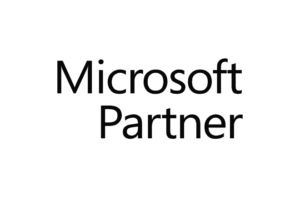Why Businesses Should Consider a Security Audit of Their Microsoft 365 Installation
In today’s digital landscape, businesses increasingly rely on cloud-based solutions for productivity, collaboration, and communication. Microsoft 365 (formerly Office 365) is a popular choice, offering tools that empower organisations to work efficiently. However, with great convenience comes great responsibility—especially regarding security.
This post explores why businesses should prioritise a security audit of their Microsoft 365 installation. Let’s dive in!
1. Protecting Sensitive Data
Businesses handle sensitive customer data, financial records, intellectual property, etc. A security audit ensures that your Microsoft 365 environment is configured to safeguard this data effectively. Here’s how:
Multi-Factor Authentication (MFA): Enable MFA for all user accounts. This adds an extra layer of protection by requiring users to provide a second form of authentication (such as a text message or app notification) in addition to a password.
Administrator Accounts: Secure your admin accounts. Implement strong passwords, limit access, and monitor these accounts closely.
2. Email Security
Email remains a primary vector for cyberattacks. Microsoft 365 offers built-in protections, but customisation is essential:
Anti-Phishing and Anti-Malware: Ensure these features are active. They block malicious emails and attachments.
Advanced Anti-Phishing Settings: Configure settings to prevent spear-phishing and impersonation attacks.
Safe Links and Safe Attachments: These features protect users from clicking on malicious links or opening harmful attachments.
A manual check of blocked emails is vital before release to end users.
3. Device Security
Whether people use company-owned or personal devices, security matters:
Managed and Unmanaged Devices: Secure both types. Install Microsoft 365 Apps on users’ computers, phones, and tablets. Implement advanced threat protection for these devices.
Windows: Upgrade from older versions to benefit from enhanced security features.
4. User Training
Educate your team about email best practices and security awareness:
Phishing Awareness: Train everyone to recognise and avoid falling victim to phishing attempts.
5. Collaboration Tools
Microsoft Teams is a powerful collaboration platform. Leverage it securely:
Safe Links and Attachments: Extend these protections to Microsoft Teams chats and files.
Sensitivity Labels: Use labels to protect sensitive content shared within Teams.
Conclusion
All businesses are vulnerable to cyber threats. By conducting a security audit of your Microsoft 365 installation, you fortify your defences, protect your data, and ensure business continuity. Remember, your users are your first line of defence—empower them with knowledge and best practices.
For more detailed guidance, please contact us, and we can explain how we can use our free tools to give you a 365 security audit report.
